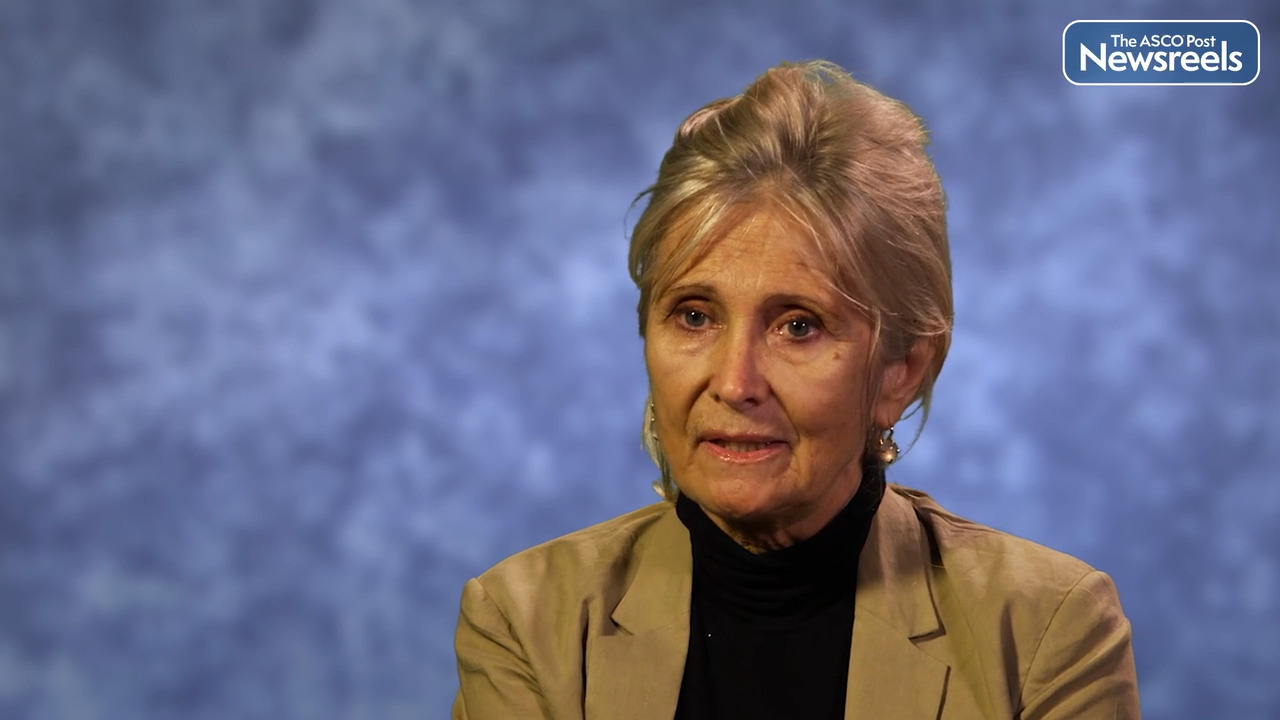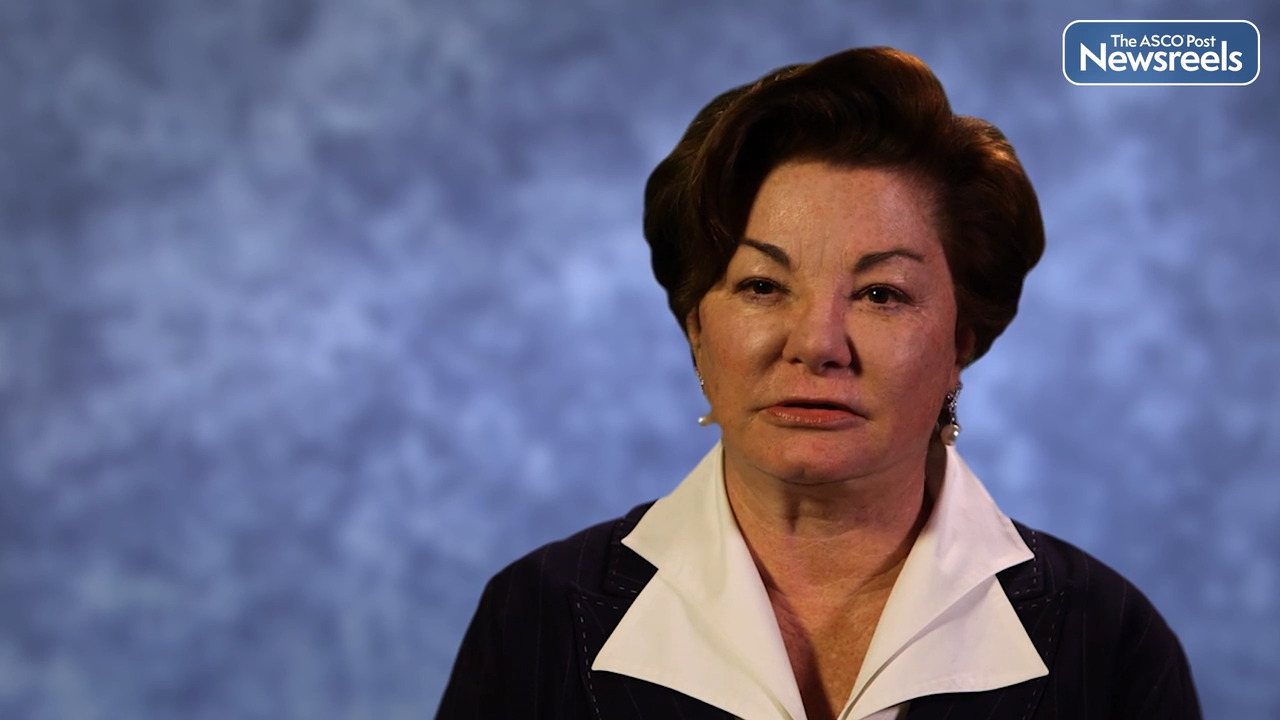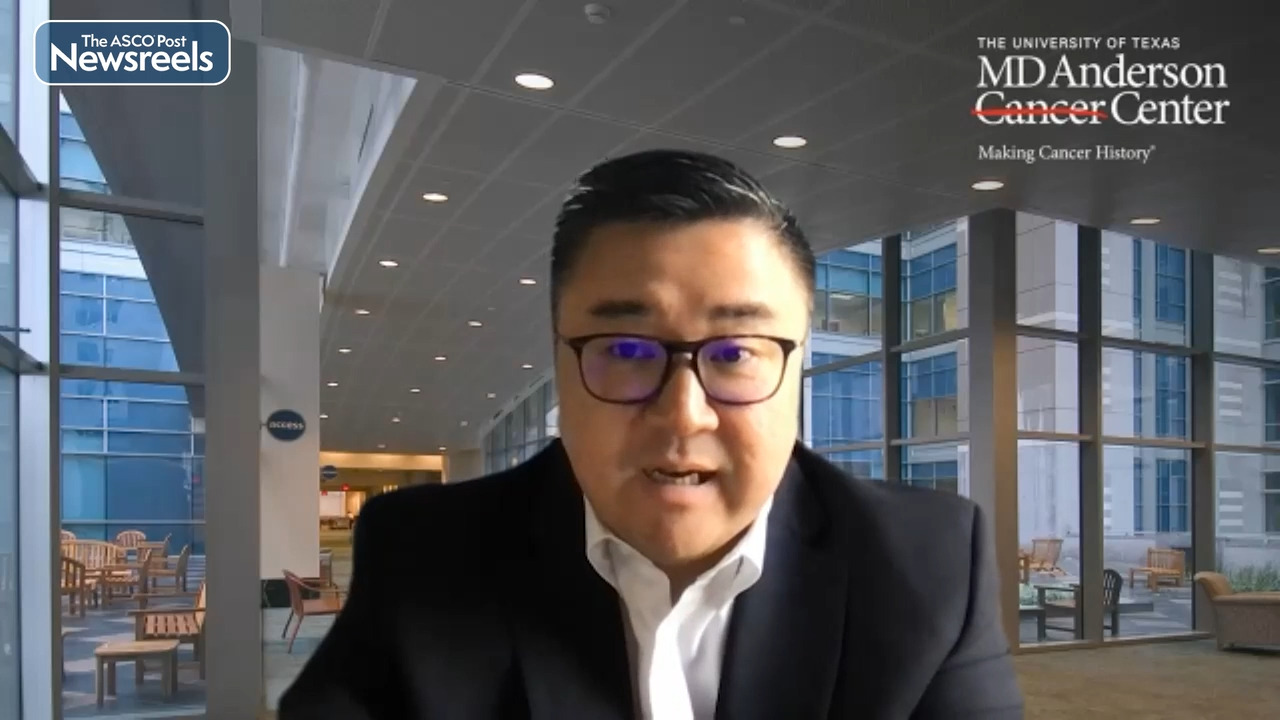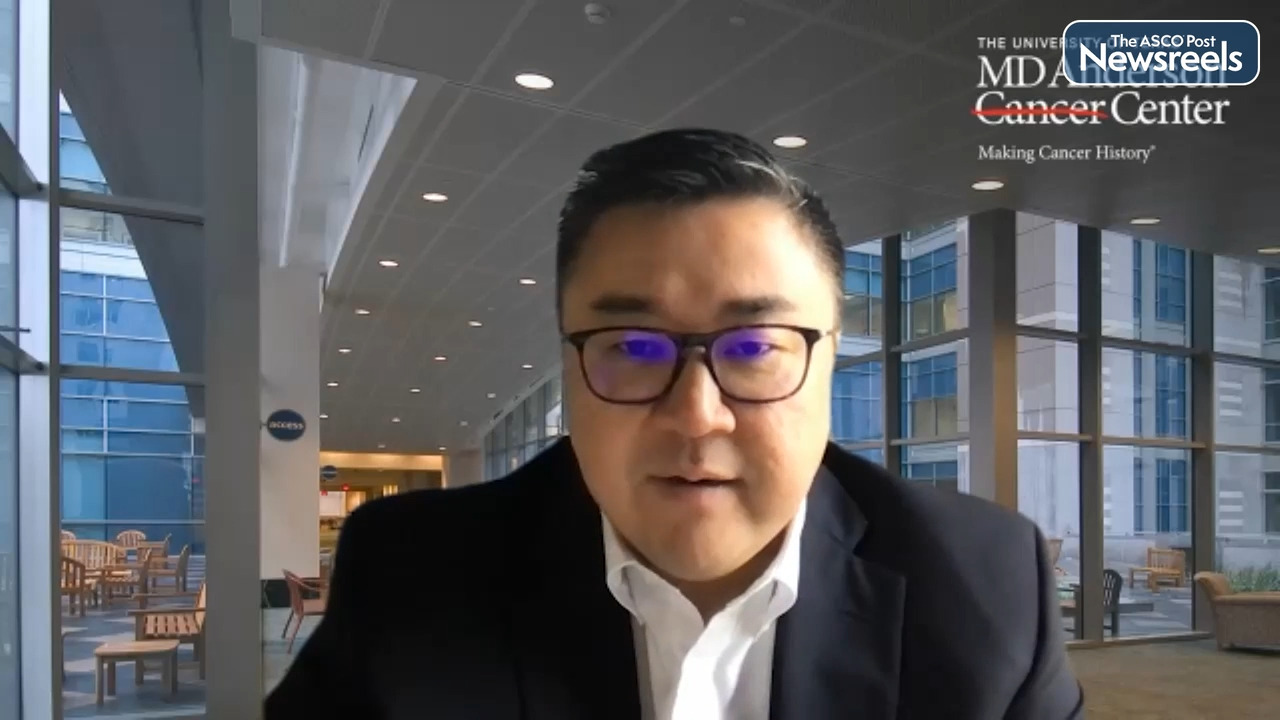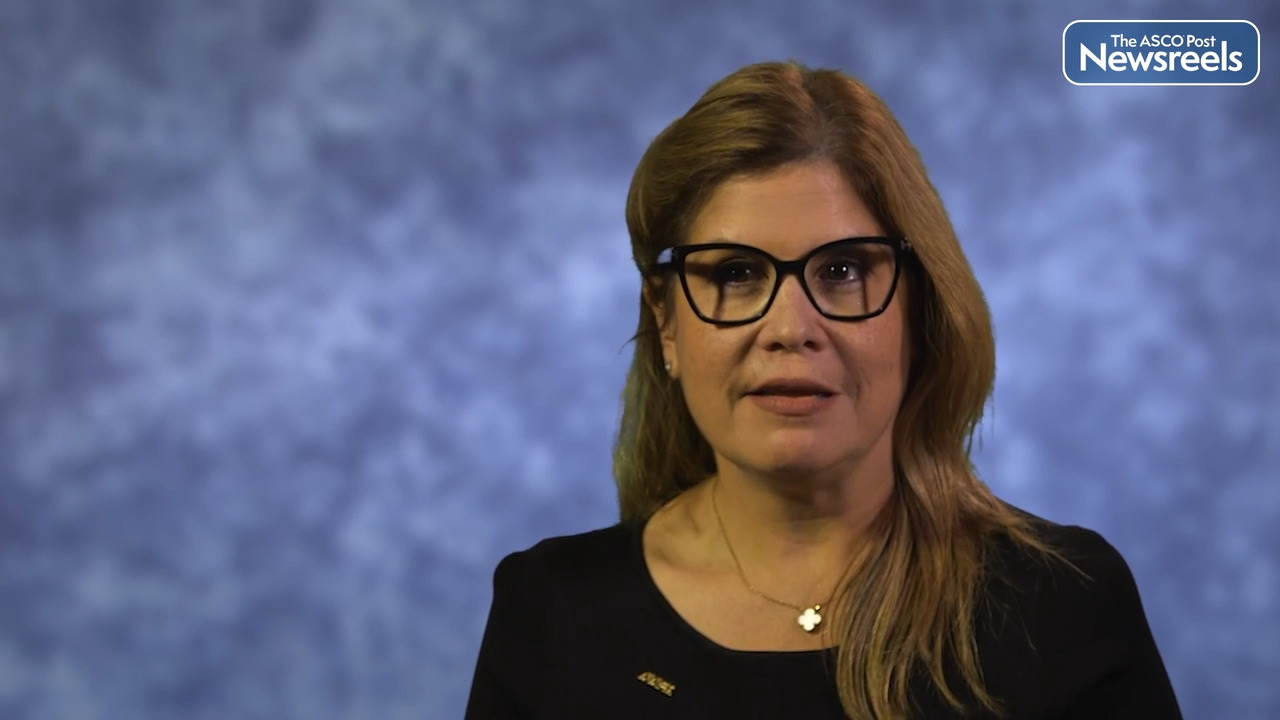Patricia M. LoRusso, DO, on Targeting KRAS: Clinical Successes and Challenges
AACR Annual Meeting 2022
Patricia M. LoRusso, DO, of the Yale University School of Medicine, discusses how patients may benefit in the coming decade from discoveries about agents that target KRAS, and how important the approval of sotorasib turned out to be, as well as other agents in the research pipeline. Dr. LoRusso also talks about the scientific advances in tackling inhibition (Abstract SY20).
Related Videos
The ASCO Post Staff
Silvia C. Formenti, MD, of Weill Cornell Medicine, discusses research on the best way to integrate radiotherapy with immune modifiers, which might require changes in standard radiation oncology practices. Variables such as the type of treatment fields, the inclusion of draining nodal stations, the degree of exposure of circulating immune cells, the type of dose fractionation, and the timing of radiotherapy during immune checkpoint blockade all can affect the success of immunoradiotherapy combinations (Abstract SY43).
The ASCO Post Staff
Cheryl L. Willman, MD, of the Mayo Clinic Comprehensive Cancer Center, discusses the profound cancer health disparities among Native Americans, exacerbated by low rates of screening and limited access to care. Dr. Willman is heading an effort to promote community engagement in comprehensive genomic sequencing with the hope that researchers will discover novel mutations and genome-wide mutational signatures that can ultimately be translated to improved screening and therapy in this population (Abstract PL03).
The ASCO Post Staff
Timothy A. Yap, MBBS, PhD, of The University of Texas MD Anderson Cancer Center, discusses results from the PETRA study, a first-in-class, first-in-human trial of the next-generation PARP1-selective inhibitor AZD5305 in patients with BRCA1/2, PALB2, or RAD51C/D mutations in advanced or metastatic ovarian cancer, HER2-negative breast cancer, pancreatic, or prostate cancer. Target engagement was demonstrated across all dose levels, and antitumor activity was observed in selected tumor and molecular subtypes.
The ASCO Post Staff
Timothy A. Yap, MBBS, PhD, of The University of Texas MD Anderson Cancer Center, discusses how research is building on the success of first-generation PARP inhibitors in the clinic and the potential of novel potent PARP1-selective inhibitors, which may lead to improved patient outcomes. Given recent advances in drug discovery, says Dr. Yap, we now can go beyond PARP by drugging other key DNA damage response targets in the clinic, including ATR, WEE1, DNA-PK, RAD51, POLQ, and USP1.
The ASCO Post Staff
Marcia R. Cruz-Correa, MD, PhD, of the University of Puerto Rico Comprehensive Cancer Center, discusses a way to possibly transform cancer outcomes by teaming up basic scientists, clinical researchers, and community advocates to work together, decode the complexity of cancer, and find points at which to intervene in the development of tumor cells. One strong focus is on communities disproportionately affected based on their genomic ancestry, geographic location, and ethnicity (Abstract PL06).
